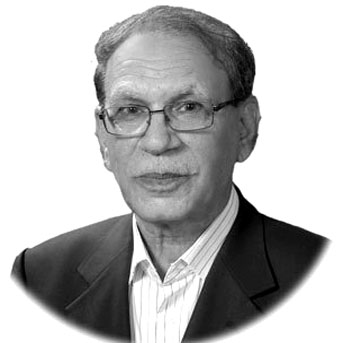Mohammad Jamil
MOHSIN Dawar and Ali Wazir along with other PTM activists blamed murder of Mashal Khan on so-called indoctrination of locals by agencies, whereas according to JIT report the perpetrators of his murder belonged to Awami National Party (ANP), which has wholeheartedly been supporting PTM. Mohsin Dawar however missed to raise this point. Would the PTM and other nationalists actually ask ANP as to how its students wing Pakhtun Students Union was involved in his murder? PTM has the habit of blaming the fault of a single individual on the entire organization. Will they do the same over the issue of Mashal Khan’s murder too? Mashal Khan, 23, a student of Mass Communications at Mardan’s Abdul Wali Khan University (AWKU), had been beaten and shot dead by an angry mob on 13 April 2017, after he was accused of blasphemy. The video of horrific lynching was circulated on social media which had shocked the nation.
A total of 61 people suspected of involvement in the lynching – the majority of them students and university employees and a PTI leader – were charged in the first information report. Out of these, 57 were sentenced by a court on 7 February 2018. In June 2017, a 13-member joint investigation team had concluded in its report that the allegations of blasphemy against Mashal were unfounded and were used as a pretext to incite a mob against the slain student. The JIT report had said Mashal was murdered in line with a plan allegedly hatched by Sabir Mayar, President of the Pakhtun Students Federation, and Ajmal, President of the employees at AWKU, where Mashal was studying Mass Communication. Mashal had been vocal about the rights of students at the university and demanded the appointment of a new Vice Chancellor at the university.
The Joint Investigation Team formed over the lynching case revealed in its report in June 2017 that members of the Pakhtoon Students Federation, the student wing of the Awami National Party, incited the mob to kill Mashal Khan on the pretext of blasphemy. The report stated the murder was premeditated as the group was threatened by Mashal’s activities because he would raise his voice against irregularities at his university. He had protested over the issue of the university not having a Vice Chancellor after the previous one retired, as the absence of one would hinder the students from getting their degrees, read the report. In 2018, a Pakistani court had convicted 31 people over the campus lynching of a university student who was falsely accused of blasphemy, and sentenced one of them to death, a defence lawyer said.
Anyhow, Barrister Ameerullah Chamkani had told Reuters that one of the 31 accused had been sentenced to death, five were jailed for life and the other 25 were jailed for four years. The court acquitted 26 others out of a total of 57 people indicted by a court in 2018. “One of the accused has been awarded death sentence, five were given life imprisonment while 26 have been acquitted,” Saad Abbasi, a defence lawyer representing the accused, told AFP at the prison where the verdict was announced. An additional 25 were given three-year sentences, he added. The accused were students, teachers and some officials of the Abdul Wali Khan University named after a secular political leader in northwest Pakistan. Mishal Khan was known as an intellectually curious and religious student. He was attacked and killed by a mob on the campus on April 13, 2017 after a dormitory debate about religion.
An official report released months later concluded that Mashaal Khan was falsely accused, saying the murder was instigated by members of a secular student group (PSF) who felt threatened by Mishal’s growing prominence as a critic of rising fee and alleged corruption at the university. Having that said, the PTM used Mashaal Khan’s murder to propagate against Pakistan and its institutions. The Washington Post had published a treatise authored by Pamela Constable and Haq Nawaz Khan on 22nd April, which was supportive of the PTM, and highlighted the outpourings of its leaders maligning Pakistan’s armed forces. It however admitted foreign hand behind the movement. The authors stated: “The new Pashtun Movement has received support from Afghans, including a strong endorsement from President Ashraf Ghani, an ethnic Pashtun. But this has only made the movement more controversial, because relations between Afghanistan and Pakistan are tense.”
There is a strong perception that PTM leaders are playing in the hands of Afghan intelligence agency NDS and Indian RAW have made inroads in the PTM, otherwise this nascent organization does not have enough funds to organize demonstrations and rallies in Karachi, Islamabad and Lahore. In his write-ups, Harsha Kakar, Major General (Retd) from Indian Army had highlighted the protest demonstrations by Pashtun Tahaffuz Movement (PTM). Mohsin Dawar and Ali Wazir were invited by President Ashraf Ghani to attend his oath-taking ceremony; but FIA had said both were on the Exit Control List. The matter was reported to the Prime Minister who instructed the Ministry of Interior to grant one-time permission to both the leaders to travel to Kabul. The Afghan government had sent its helicopter to facilitate the departure of the PTM leaders from Torkham to Kabul.
Mohsin Dawar tweeted: “Finally Reached Kabul! Want to express my gratitude to President Ashraf Ghani for delaying his oath taking for the arrival of Ali Wazir and myself. Overwhelmed by the welcome we have received here; wishing a peaceful future for Afghanistan and the region”. The truth of the matter is that US Assistant Secretary of the State was holding meeting with Ashraf Ghani and Abdullah Abdullah to resolve their differences; thus oath taking ceremony was delayed, and not because of PTM leaders’ late arrival.
—The writer is a senior journalist based in Lahore.









